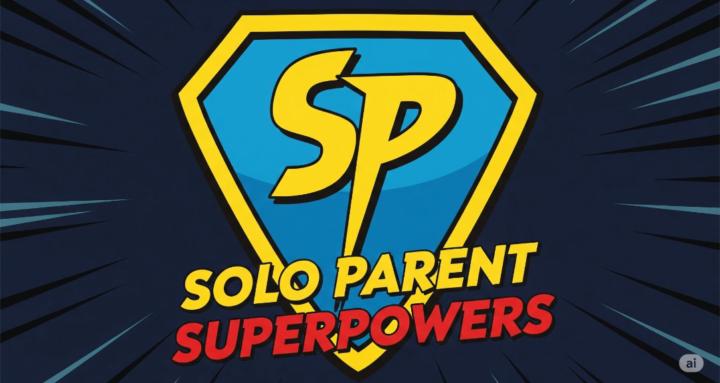23d (edited) • General discussion
The Spilled Paint Test: Your Secret Weapon for Emotion Regulation 💥
Let's talk about one of those moments that tests every single ounce of our patience. A moment where the solo parent superpower of emotion regulation isn't just nice to have—it's essential.
Picture this:
You’ve had a long day at work. Your mind is a browser with a million tabs open: bills, what to make for dinner, the permission slip you forgot to sign, the need for new school supplies.
Meanwhile, your kids are doing what kids do. They're playing loud, running, jumping, and yelling. And honestly, you're okay with it. They're happy and burning off energy.
Then you see it. An open container of kids' paint, sitting precariously on the corner of the coffee table.
You calmly say, "Kids, please put that paint away." ...Nothing but the sound of thundering feet.
"Kids, please put that bottle away." ...Still nothing.
"KIDS, put that bottle away PLEASE!" Your tone is raised, just a little. The frustration is starting to bubble up. They keep running and jumping.
And then, it happens. One of them bumps the table. The bottle tips. The paint spills all over the floor.
There's a big pause. The running stops. The yelling stops. Everyone is frozen, just looking at each other. Two seconds that feel like an eternity. They know.
Your mind starts going a million miles per hour. You want to scream. Your day was already hard, you calmly warned them multiple times, and now this. They’re looking at you, waiting for the explosion. They want to say sorry, but they’re also braced for the reaction. Is she going to yell? Am I going to get in big trouble?
One of them whispers, "Sorry!"
Now, the ball is in your court. (You also know it’s washable paint, thank goodness). You could lecture them. You could tell them "I told you so!" and send them to their rooms.
Or you can choose a different path.
You take a deep breath. You let the frustration wash over you and then let it go. Calmly, you say, "Kids, I told you about the bottle because it was in the way and I was worried this might happen. Accidents happen. Please, next time I ask you to do something, I need you to listen."
Then you switch gears. "Now, we're going to play a game. Here are some paper towels. The one who gets the most paint off the floor wins a high-five from everyone. Ready? 3, 2, 1... GO!"
In previous generations, this would've been the moment for a "life lesson" delivered through yelling, spanking, or grounding. But we are breaking the cycle. We're learning how to parent and communicate in a way that builds connection, not fear.
Regulating our own emotions in these high-stress moments is a sign of our maturity and strength. It's hard. It's work. Many of us didn't have this modeled for us, but it's our chance to make a profound change for our own children.
They will be grateful for this.
This isn't just "soft" parenting; it's smart parenting backed by psychology. When you stay calm, you are doing something called "co-regulation." You are essentially lending your calm, regulated nervous system to your children, whose brains are still developing the capacity to manage big feelings on their own.
According to a foundational article in developmental psychology, parents play a crucial role as "socializers of emotion." How we react to our children's emotional displays and our own emotional state teaches them how to understand, express, and manage their feelings.
In their highly influential work, "Parental Socialization of Emotion," researchers Nancy Eisenberg, Alison Cumberland, and Richard A. Spinrad explain that parents who react to negative events with punishment and minimization tend to have children with lower social competence and poorer emotion regulation skills. Conversely, parents who are supportive and help children focus on problem-solving (like turning cleanup into a game) foster better emotional understanding and regulation. (Source: Psychological Inquiry, Vol. 9, No. 4, 1998, pp. 241-273).
By choosing the game over the lecture, you are teaching:
- Mistakes are fixable.
- Big feelings (like your frustration and their fear) can be managed.
- We are a team that solves problems together.
They are learning to regulate, too. They don't have to be perfect soldiers listening to every command. They are allowed to be kids. Having you by their side when they mess up is the best lesson you can give. "Stop crying" is not an option anymore. "Let's figure this out together" is.
So, I want to hear from you! When was your last "spilled paint" moment? How did you handle it, and what did you learn? Share in the comments!
1
0 comments

skool.com/solo-parent-superpowers
Unleash your Solo Parent Superpowers! 💪 You're a hero, and heroes need backup too. Join us!
Powered by



